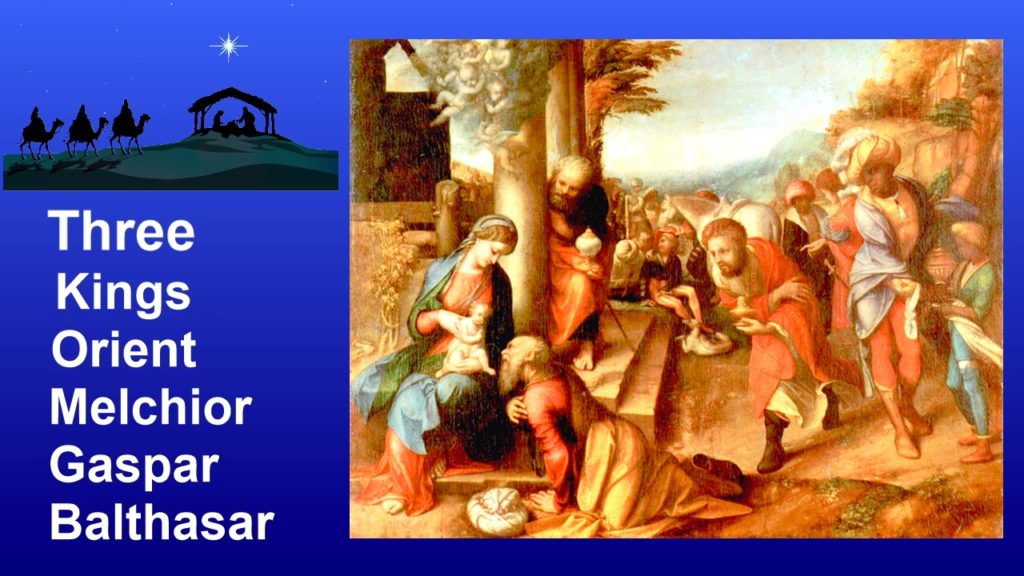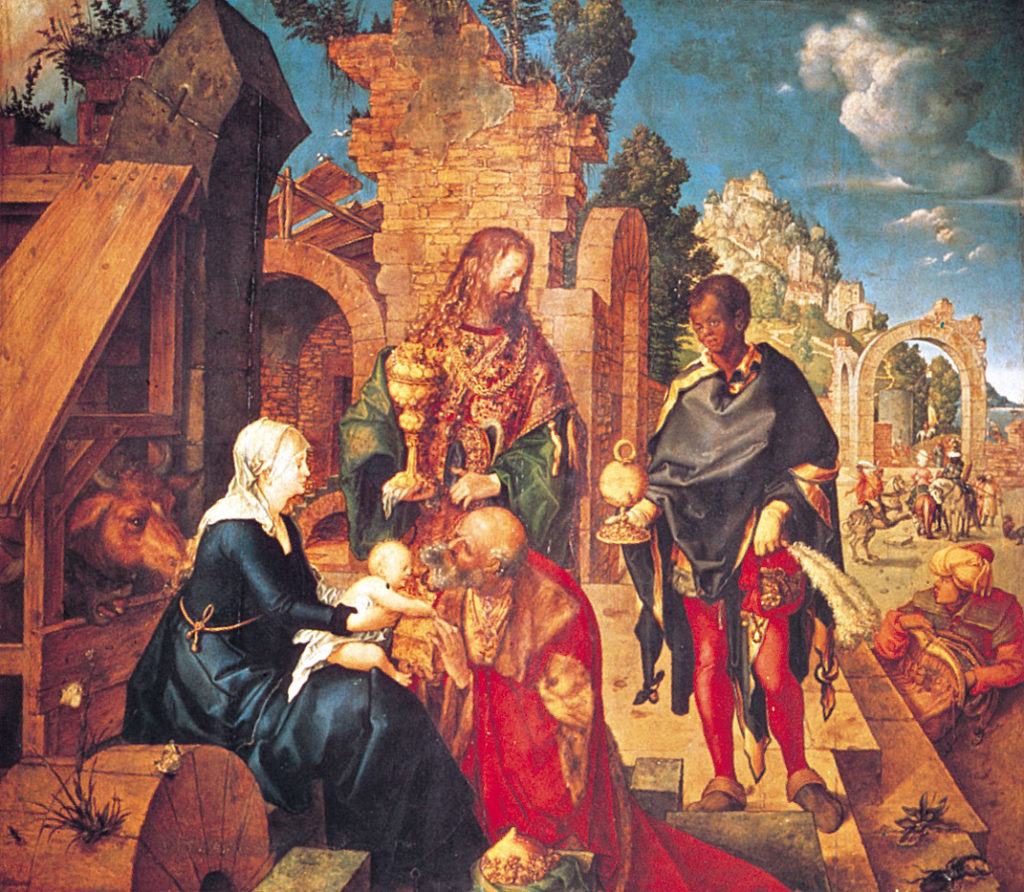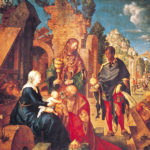Who ARE These Guys?
Contributed By: Rev. Mark Breese
(Download Reflection) This is the Homily for the Jan 6 Chapel Service.
Pastor Mark is the Agency Minister and the VP of Ministry & Community partnerships at Community Missions.
So Epiphany. It’s the day we remember and celebrate the story of the Magi coming to see the baby Jesus. And we think we know this story. I mean there is the song, “We Three Kings of Orient Are”.
We three kings of Orient are
Bearing gifts we traverse afar
Field and fountain, moor and mountain
Following yonder star
O, Star of Wonder….
And there it is. There were three dudes, royal dudes, wise dudes… and they saw a star that meant there was a king born for the Jewish people. They got on their camels and made a journey to find him. After mistakenly going to look for him at King Herod’s court, they follow the star and it leads them to Jesus where they present him with 3 gifts of:
- Gold – a symbol recognizing Jesus as a King;
- Frankincense – a symbol recognizing Jesus as Devine; and
- Myrrh – a substance that was used in ancient embalming processes and so symbolized mortality and death.

And we even have names for these guys: Melchior, Gaspar, and Balthasar.
So yea, we think we know this story. But do we? Let’s jump back to the text and do a quick search for some key words.
We say there were three people. Look as hard as you like but there is no mention of how many magi there were. The word “Three” does not appear. Or “Orient”. Or “Kings”. King, the singular does appear, but it is about Herod and Jesus. And Melchior, Gaspar, and Balthasar? Nope they aren’t there either. Neither does the word “wise” in the original Greek. Just Magi which does not necessarily translate as “wise”.
But I do want you to know at least one thing, so you can keep it in mind when you smile hearing the story of Epiphany in scripture or in song
Like with so many moments in Jesus’s earthly ministry, even as a baby, he apparently was hanging out with all the wrong people. Even before he could speak, Jesus was welcoming everyone no matter who they were. Even superstitious, suspicious, disreputable and spiritually unclean Gentiles like the Magi.
Yup. They weren’t respected kings. They weren’t visiting dignitaries. They were fortune tellers and astrologers and magicians. Magi is where we get our word Magic from. And for a Jewish person of Jesus’s day, the Magi would have been people to avoid associating with. In the book of Acts, Paul describes a guy named Elymas, who was a Jewish Magus (that’s the singular of Magi) like this:
“You are a child of the devil and an enemy of everything that is right! You are full of all kinds of deceit and trickery. Will you never stop perverting the right ways of the Lord?” (Acts 13:10)
So, even though most translations of the story of the Magi in Matthew call them “Wise Men” The word they are translating is Magi (or Magus). In Acts 13 Elymas is a “magus” but translations into English use the word “sorcerer” not the phrase “wise man”.
You see here is the thing. For all that the Magi were probably of some means (their gifts were not cheap), and probably were sought after in their home countries as being wise, and even though they eventually got to the right place and found the baby Jesus and honored him as King, which, lets face it, was no small thing— in spite of those marks in their favor, any devout self-respecting Jewish person of Jesus’ day would see them, as “the epitome of Gentile idolatry and religious hocus-pocus — dabblers in chicken gizzards, forever trotting off here or there in search of some key to the future.”1

It all just really forces us to ask the same thing that Mary and Joseph and their neighbors were probably thinking, “Who ARE these Guys?” I think they, like us, thought they knew who the Magi, and their ilk, were… what they represented and why they should just be given a wide birth. “What, You can read the stars and tell me my future?… Uh, no thanks.” But then the Magi kneel down. They bow in reverence before a poor Jewish carpenter’s child who lives in a backwards, backwater town, and present him with expensive gifts.
You see, before ever Jesus is walking or talking the boundaries are being broken down! Gentiles—even “idolatrous, hocus-pocus wielding, dabblers in chicken gizzards” are welcomed in to the presence of the Messiah. Where everyone else would be saying “Who ARE these guys”, Jesus would be saying, “They are God’s children, let them come to me.”
I wonder how often we as Christians look at who is around us, or perhaps even look at who reaches out to us seeking knowledge of God’s love, and unconsciously (or maybe consciously) think “Who ARE these guys?”
When we find ourselves doing that, it would serve us well to remember the Magi—not the Three Kings and wise men of the song, that we THINK we know all about. Rather, we would do well to remember the Magi as they were—outsiders to good Jewish folk of the day, people to be avoided, people that we should not listen to or take seriously because they could not possibly know any kind of truth. We should remember the Magi because even though they were the wrong sort of people…they saw what and who Jesus was . . . and responded!
This is what is so important about this story… and it is so much more important than the story we think we know. We, like Jesus, need to welcome all people with love and acceptance. Even these Magi—these “idolatrous, hocus-pocus wielding, dabblers in chicken gizzards”. God loves them and welcomed them into the presence of Christ. So should we.
Amen.
1 Brian Stoffregen, Exegetical Notes, http://crossmarks.com/brian/matt2x1.htm

